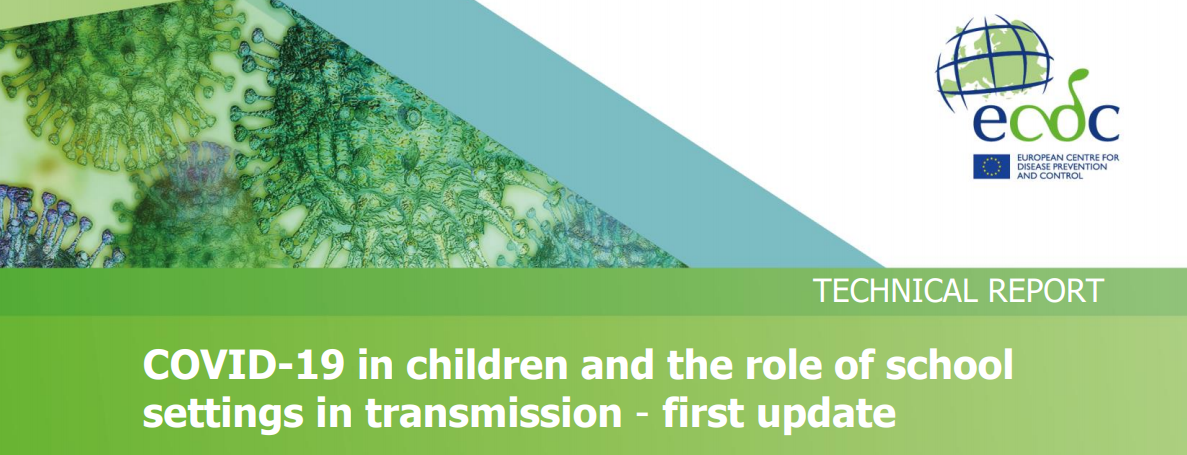COVID-19: European Centre for Disease Prevention and Control publishes a new study on COVID transmission in schools
08 January 2021
The COVID 19 outbreak is a public health crisis quite different than anything Europe has faced for many years. As education personnel and their trade unions grapple with the outbreak, we are supporting and informing member organisations in any way we can.
- Long COVID-19: What challenges for education trade unions across Europe?
- ETUCE study on Education Trade Unions in Europe facing COVID-19 Omicron Variant
- Well-being of academics and researchers in the Netherlands: who did COVID-19 affect the most?
- Belgium: Education is essential! Truly?
- Education and Training Monitor 2021 sheds light on well-being during COVID-19
- Education trade unions building capacity for renewal beyond COVID-19
- Romania: Success in the negotiations for a vaccination agreement
- UK Study found stress and anxiety of academics above national average during COVID-19 pandemic
- Latvia: the impact of the pandemic on teachers is extremely worrying
- French study: the psychosocial impact of COVID-19 on researchers

The study found that children were under-represented among severe cases, though the proportion of children aged 12-18 among the infected, matched their proportion in the population. The ECDC also found, through household and contact tracing studies, that younger children are less susceptible to SARSCoV-2 infection than adults and did not consider schools to have been a driving force for increased infections in autumn 2020.
Though the ECDC noted that school closures are likely to reduce social mixing and thus COVID-19 infections, the relative effectiveness of closing primary or secondary schools could not be determined. Moreover, evaluating the relative effectiveness of school closures compared to other non-pharmaceutical interventions is highly challenging. The report thus reminds of the negative health, social and economic consequences of closing schools, supporting its use as a last resort measure.
It must be noted that the results presented in the study do not account for the new variant of the COVID-19 virus, which appears to be more transmissible. The study does not account for adult education nor VET education and does not include data from boarding schools.
While education is a fundamental right and a public good, and social interaction is important for young people’s development and well-being, online and remote teaching is only an emergency solution, because it does not allow for the quality, motivation and support of the physical school environment with the personal contact with teachers and classmates. Nevertheless, the opening of education institutions to on-site teaching can only take place if it is not to the detriment of the health and safety of teachers which have to be, at all times, the highest priority.
ETUCE calls on governments to put all measures in place to ensure that education institutions be safe and healthy teaching and learning places, based on thorough analysis of the current situation with a view to develop better concepts and to provide adequate protection to teachers, students and the society as a whole from the further dissemination of the COVID-19 virus.